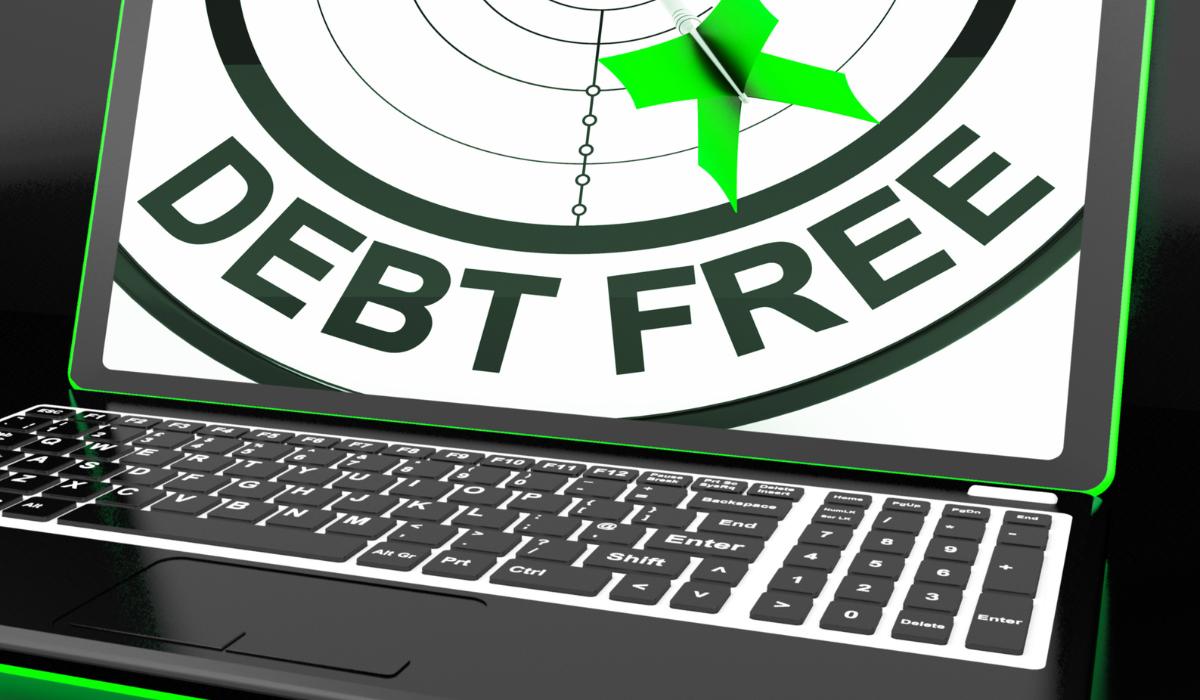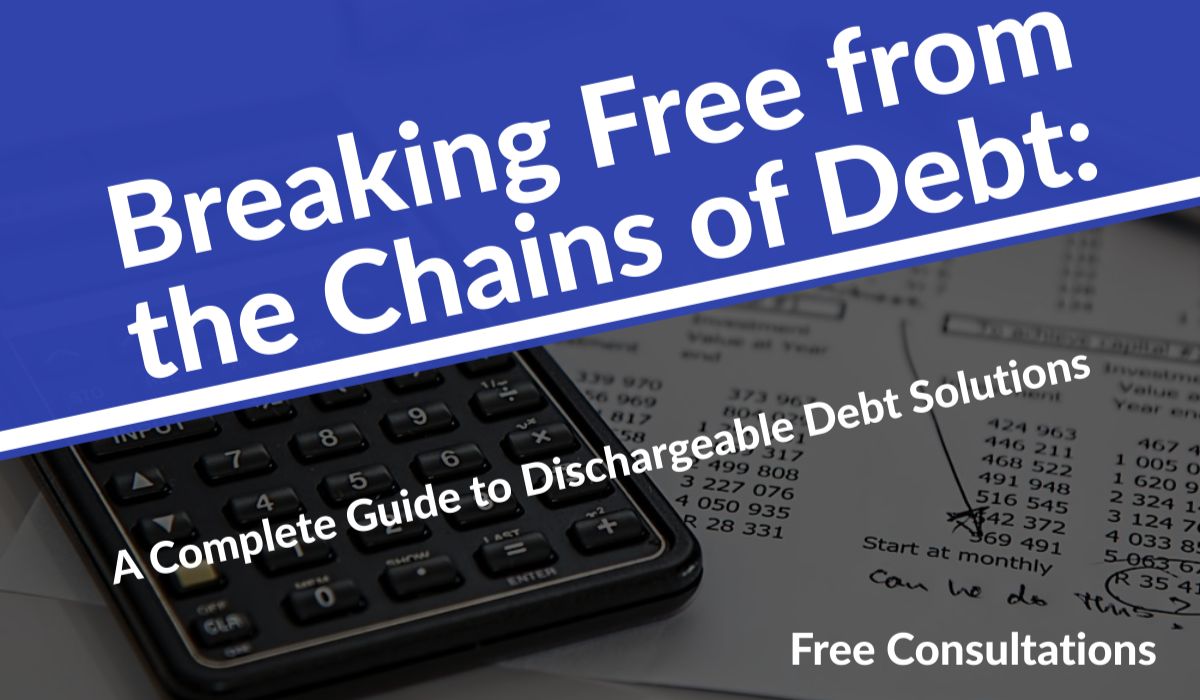In today’s fast-paced world, where financial stability is a paramount concern, understanding and managing debt has become a crucial aspect of personal finance. Debt, often seen as daunting, can significantly impact one’s emotional and financial well-being. Our comprehensive guide delves into the intricate world of debt, offering insights and solutions for those struggling to break free from its chains.
The implications of debt go beyond numbers. It encompasses the stress and financial constraints that permeate every aspect of our lives. Excessive debt can give rise to anxiety and depression. Strain relationships trap individuals in a never-ending cycle of worry.
Recent data reveals a trend in personal debt levels worldwide.
The increase in question can be attributed to factors such as credit availability, rising expenses of living, and a limited understanding of financial matters. These patterns highlight the importance of implementing strategies for managing debt
The recent trends reveal a concerning surge in debt levels. This increase can be attributed to factors including access to credit, rising living expenses, credit access, and a lack of financial knowledge. These trends emphasize the importance of implementing strategies for managing debt.
Fundamentals of Debt:

Types of Debt: Secured vs. Unsecured
Understanding the types of debt is crucial in effective your debt management plans. Secured debts are tied to an asset, like a home or car, serving as collateral. Unsecured debts, such as credit card debts and medical bills, do not have any collateral backing.
Definition and Differences
The primary difference lies in the risk associated with each type. Secured debts generally have lower interest rates due to the collateral, whereas unsecured debts carry higher risks for lenders and, consequently, higher interest rates for borrowers.
Understanding the fundamentals of debt is crucial for debt management. There are two types; unsecured debts. Secured debts are tied to an asset like a house or car, which is collateral. On the other hand, unsecured debts, such as credit card debts and medical bills, don’t require collateral.
Examples of Each Type
Common examples of secured debt include mortgages and auto loans, where the property or vehicle can be seized without payments. Unsecured debt examples include credit card debts private student loans and personal loans, which rely solely on the borrower’s creditworthiness.
What is Dischargeable Debt?
Dischargeable debt refers to obligations that can be eliminated through bankruptcy proceedings. It offers individuals overwhelmed by their burdens an opportunity for a start.
In terms of dischargeable debt, it refers to debts that can be eliminated by declaring bankruptcy. This category typically includes debts, like credit card balances, medical expenses federal student loans, and personal loans. These debts can be discharged without the requirement of making any payments.
Legally, dischargeable debt is defined as obligations that can be erased by filing for bankruptcy. It includes most unsecured debts, such as credit card debts, medical bills, student loans, and personal loans.
Preparing for Debt Discharge:

Assessing Your Debt Situation
To achieve freedom, it is essential to grasp your debts. Begin by collecting all your records, such as credit card statements, loans, and other outstanding debts.
By conducting a review, you can gain an understanding of the amount you owe, who you owe it to, and the terms involved. It’s important to distinguish between unsecured debts since this will impact your approach towards paying off your debts.
How to List Your Debts
After you’ve collected all of your paperwork, it’s important to record your outstanding debts. Make sure to include the name of the person or institution you owe money to, the amount owed, the interest rate associated with each debt, and the monthly payment required.
It’s essential to update this list to monitor your progress and make any adjustments to your financial strategy. To keep this information organized and easily accessible, consider using spreadsheet software or a reliable financial management app.
Prioritizing Debts for Discharge
Deciding which debts to prioritize is a choice. Generally, it is recommended to begin with debts with the highest interest rates since they are expensive in the long run. However, some individuals might opt to start with smaller debts for a boost. This approach, known as the ‘snowball’ method, entails paying off debts and gradually progressing towards larger ones.
This strategy involves paying off your debts from the smallest balance to the largest, regardless of interest rate. It provides psychological wins that can motivate you to keep going.
Budgeting and Financial Planning
Effective budgeting is crucial for debt discharge. Analyze your income and expenses to identify where you can cut back. Create a budget prioritizing debt repayment while allowing for essential living expenses. It’s important to be realistic and include a contingency for unexpected costs.
Creating a Sustainable Budget
In today’s world, having a grasp and efficient handling of debt is crucial. A key element in this process involves debts, which can be relieved through bankruptcy. However, before considering measures, there are various strategies that individuals can adopt to regain control over their financial circumstances.
It’s important to have a budget that not only helps you pay off your debts but also allows you to maintain them in the long run. This involves taking into account lifestyle changes that can help you cut down on expenses without significantly affecting your quality of life. Review and adjust your budget periodically to reflect any changes in your income or expenses.
Tools and Resources for Financial Management
Utilizing tools and resources can significantly enhance your financial management. Online budgeting tools, debt repayment calculators, and personal finance apps can provide valuable assistance in tracking and managing your debts. Consulting with a financial advisor can also offer personalized strategies and insights tailored to your specific situation.
Debt discharge is an achievable goal with the right approach and tools. You can work towards financial freedom by assessing your debt situation, listing your debts, prioritizing them effectively, and creating a sustainable budget. Utilizing the available tools and resources can streamline this process, making it more efficient and less daunting.
Remember, debt discharge requires patience, commitment, and a well-thought-out strategy. Regularly reviewing and adjusting your approach based on your financial situation is key to success. With determination and guidance, you can navigate your way out of debt and toward a more secure financial future.
Strategies for Dischargeable Debt Settlement Companies:

In today’s world, it is essential to have a grasp on debt and how to handle it. Dischargeable debts, which can be resolved through the bankruptcy court, play a role in this process. However, instead of resorting to such extreme measures, there are various strategies that individuals can implement to regain control over their financial circumstances.
1. Debt Settlement Negotiations: How to Approach Creditors
Engaging in debt settlement negotiations is a proactive approach to managing outstanding debts. The key here is effective communication with creditors. Start by reviewing your financial situation and propose a realistic payment plan.
Be honest and transparent about your financial constraints. This may lead to a reduced overall debt amount or a more feasible payment schedule.
Do’s and Don’ts of Debt Settlement
Do:
- Keep a record of all communications.
- Be clear about your financial limits.
- Seek professional advice if necessary.
Don’t:
- Make promises you can’t keep.
- Ignore creditor communications.
- Rush into agreements without understanding the terms.
2. Debt Consolidation Options: Understanding the Process
Debt consolidation involves combining multiple debts into a single, more manageable loan. This can simplify your payment process and potentially lower your interest rates. Understanding your debt consolidation loan options is critical to making an informed decision.
Pros and Cons of Debt Consolidation
Pros:
- Simplified payment process.
- Potentially lower interest rates.
- Improved credit score over time.
Cons:
- This may lead to longer payment terms.
- Upfront costs or fees.
- Risk of further debt if spending habits aren’t adjusted.
3. Credit Counseling and Management: Finding a Reputable Credit Counselor
Credit counseling services can provide valuable guidance in managing your debt. A reputable credit counselor will offer personalized advice, helping you develop a budget and debt management plan. Look for accredited agencies with positive reviews and transparent fee structures.
How Credit Counseling Can Help
Credit counseling offers numerous benefits, including:
- Developing a realistic budget.
- Exploring different debt management strategies.
- Negotiating with creditors on your behalf.
4. Bankruptcy: A Last Resort
When facing difficulties, it’s important to view bankruptcy filing only as an option because of its lasting consequences on your credit rating. It is crucial to understand the forms of bankruptcy and their mechanisms.
Chapter 7 vs. Chapter 13 Bankruptcy
- Chapter 7 Bankruptcy: This type involves liquidating your assets to pay off debts and typically resolves quickly. However, some assets may be exempt from liquidation.
- Chapter 13 Bankruptcy: This involves a repayment plan over three to five years and allows for the retention of certain assets. It also stays on your credit report for up to ten years.
It’s crucial to consult an attorney before filing for bankruptcy and carefully consider its potential consequences. Finding a sustainable debt management strategy that works for you is the key to achieving financial stability and peace of mind. Remember, with patience, determination, and strategic planning, you can successfully overcome your debts and pave the way toward a brighter financial future.
Avoiding Common Pitfalls:

The Impact of Debt Discharge on Credit Score: Understanding the Nuances
Although debt discharge offers some debt relief and burdens, it can impact your credit score. When a debt is discharged, you are no longer legally obligated to repay it. However, this can potentially lead to a decrease in your credit score. Credit scores are influenced by factors such as payment history and credit utilization. Therefore a debt discharge could affect these aspects. Potentially result in a score.
Short-Term vs. Long-Term Effects on Credit
The immediate outcomes of having your debt forgiven can be quite daunting, for your credit score. It might become difficult to obtain credit, high interest rates, or even receive a mark on your credit report. Nevertheless, it’s important to consider the long-term implications. Over time the impact of debt forgiveness lessens, allowing you to rebuild your credit.
Achieving this involves adopting habits such as making payments keeping balances low, and avoiding new debts. We also suggest collaborating with WhyI Budget to monitor your credit score and receive guidance on rebuilding it after debt forgiveness. Remember that dealing with and eliminating debts is the step towards attaining financial stability; maintaining healthy financial practices is crucial for sustaining it in the long run.
Rebuilding Credit Post-Discharge: A Strategic Approach
You’ll need to take a disciplined approach to rebuild your credit after having a debt discharged. Begin by examining your credit report for any errors or inaccuracies. If you find any, make sure to dispute them promptly. Next, establishing a well-thought-out budget is essential to help you manage your finances effectively. Additionally, consider utilizing a secured credit card to rebuild your credit.
Remember that responsible credit usage is crucial, so try to maintain balances and make payments. Again this is where Why I Budget plays a significant role in providing personalized advice and monitoring your progress. With time, patience, and wise financial decisions, you can successfully rebuild your credit score after a debt discharge.
Part 5: Case Studies and Success Stories:
Life After Debt Discharge: Maintaining Financial Health and Building Wealth:

Introduction to Post-Debt Financial Management
Starting a chapter after being relieved of debt can bring excitement and apprehension. The feeling of being free from burdens is tangible. Remembering the importance of maintaining financial well-being and staying clear of future debts is important. This all-encompassing guide offers tactics for maintaining a financial standing establishing a reliable emergency fund, and making wise investment choices to secure long-term wealth growth.
Strategies for Sustaining Financial Wellness
- Comprehensive Budgeting:
After clearing your debts, creating a solid and practical budget is critical to maintaining well-being. This involves monitoring your income and expenses to gain insights into your spending habits. Using budgeting apps or tools can significantly aid in this process, giving you a picture of how money flows in and out and helping you identify areas where you can reduce costs or increase savings. - Credit Score Monitoring:
Regularly monitoring and improving your credit score is essential. A healthy credit score reflects financial stability and opens doors to better rates on loans and insurance, impacting long-term financial wellness. Adopting timely bill payments and prudent credit utilization is key to maintaining a strong credit profile.
Tactics to Avoid Future Debt
- Smart Spending Decisions:
Adopting a frugal lifestyle without compromising quality of life is a delicate balance. Prioritize spending on necessities and value-driven purchases, avoiding impulsive buying. Embracing a ‘need versus want’ mindset can be transformative in preventing debt accumulation. - Debt-Proofing Your Future:
One effective way to avoid future debt is to have a plan for large purchases. Setting aside money for monthly payments for big-ticket items like a car or holiday can prevent reliance on credit.
Building an Emergency Fund: Your Financial Safety Net
- Setting Emergency Fund Goals:
An emergency fund is a buffer against unexpected expenses like medical emergencies or job loss. Aim to save at least three to six months of living expenses. Starting small and gradually increasing contributions can make this goal attainable. - Investing Your Emergency Fund: Putting your emergency savings into risk liquid choices such as money market accounts or short-term certificates of deposit (CDs) can help you earn a slightly better return without sacrificing easy access to your funds.
In conclusion, maintaining financial health post-debt discharge requires disciplined strategic planning. The key strategies include:
- Comprehensive Budgeting: Establishing a realistic budget and tracking income and expenses to optimize savings and control spending.
- Credit Score Monitoring: Regularly check and improve your credit score, ensuring timely bill payments and sensible credit utilization.
- Smart Spending Decisions: Prioritizing purchases, focusing on necessities rather than desires, and refraining from spontaneous shopping.
- Debt-Proofing Your Future: Make careful plans for expenses to avoid depending on credit and embrace a lifestyle that reduces the chances of accumulating debt.
- Building an Emergency Fund: Setting achievable goals for an emergency fund and investing it wisely in low-risk, high-liquidity options.
Ultimately, the journey toward financial wellness post-debt discharge involves a balance of smart budgeting, careful spending, and proactive financial planning. By implementing these strategies, you can sustain a healthy financial profile and build long-term wealth for a secure future. Remember that every step towards financial stability and freedom is worth the effort!
As you navigate through your journey it’s important to maintain a mindset and stay focused. Overcoming challenges can be tough. Rest assured that you have the inner strength to shape your financial future for the better. The secret to success lies in planning, consistent efforts, and patience.
Your path toward achieving freedom may have its share of obstacles, but every hurdle you overcome brings you closer, to your ultimate goal. Remember that your worth extends beyond your circumstances; each new day allows you to make smarter choices when managing your finances. Stay empowered, continue learning, and keep striving for well-being. You’ve got what it takes!
FAQs:
Q. What debts are typically considered dischargeable?
- Credit card debt
- Medical bills
- Personal loans
- Utility bills
- Past-due rent or mortgage payments
Q. What debts are typically not dischargeable?
- Student loans
- Child support or alimony payments
- Tax debt
- Court fines and penalties
Q. How long does it take for a discharged debt to be removed from my credit report?
Typically, a discharged debt takes around seven years to be removed from your credit report. However, this can vary depending on the type of debt and the specifics of your situation.
Q. Can I rebuild my credit after being discharged from debt?
You can rebuild your credit after debt discharge by consistently making timely payments and practicing responsible credit utilization.
Q. How does debt discharge affect my credit score?
When your debts are discharged, your credit score may be negatively affected, indicating an inability to repay what you owe. However, as time goes on and you work towards rebuilding your credit and practicing habits, your score will gradually improve. It’s important to view debt discharge as a step towards term financial well-being and an opportunity to start anew financially. Remember that you can overcome any financial challenge and achieve your goals by employing the strategies and maintaining a mindset. Keep moving with determination on your path toward freedom!
Q. Can all debts be settled or consolidated?
No, not all debts can be settled or consolidated. It depends on the type of debt and your financial situation. It’s important to consult with a financial advisor or attorney.
Q. What are the first steps to take to get out of debt, when overwhelmed by debt?
To start, you should evaluate your debts. Establish a budget. This will give you an understanding of your situation and allow you to make informed decisions. It’s also crucial to seek guidance from an advisor or attorney who can provide advice. Moreover, consider contacting your creditors to discuss payment arrangements or explore your debt settlement program options.
Taking Control of Your Financial Future
Debt doesn’t have to be a life sentence. You can reduce or even discharge your debt by understanding your debt and employing targeted strategies. From debt consolidation to bankruptcy, each method has its place. Remember, the path out of debt begins with a single step: acknowledging the problem and committing to change. With determination and the right strategy, you can reclaim your financial independence and build a more secure future.
Whether you’re struggling with credit card debt have student loan debt or are feeling overwhelmed by various debts, it’s essential to assess your situation, explore your options, and take decisive action. Seeking the advice of financial experts and using resources like credit counseling can provide personalized guidance suited to your unique financial situation.
While the journey to a debt-free life may be challenging, it is possible with the right approach and mindset. Don’t hesitate to reach out for help; take each day as an opportunity to move closer to your financial goals. With these strategies in hand, you have the power to overcome your debts and forge a path to a brighter financial future.


